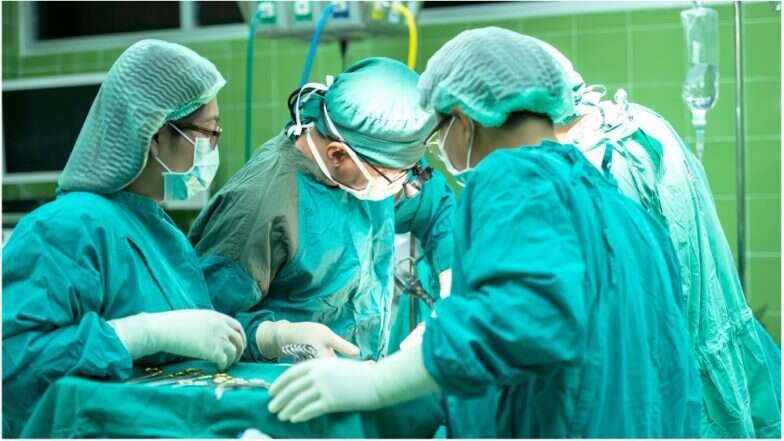According to the current evidence, Covid-19 virus is primarily transmitted between people via respiratory droplets and contact routes. Wearing a face mask in public places reduces the chances of infection and prevents it from spreading, as those who are pre-symptomatic can spread the virus before showing symptoms.
Till the time a vaccine is not developed the most effective ways of protecting yourself include washing hands frequently with soap and water and practising physical distancing wearing face masks.
WHO updated guidance on the use of masks for control of #COVID19: https://t.co/z6DTZLG5Qs
The new guidance is based on evolving evidence and provides updates on:
😷who should wear a mask
😷when a mask should be worn
😷what a mask should be made of pic.twitter.com/Cu7MEyCs3J
— World Health Organization (WHO) (@WHO) June 5, 2020
The commentary, published in the New England Journal of Medicine, advances the unproven but promising theory that universal face mask-wearing might be helping to reduce the severity of the virus and ensuring that a greater proportion of new infections are asymptomatic.
It comes as increasing evidence suggests that the amount of virus someone is exposed to at the start of infection – the “infectious dose” – may determine the severity of their illness. Indeed, a large study published in The Lancet last month found that “viral load at diagnosis” was an “independent predictor of mortality” in hospital patients.
Wearing masks could therefore reduce the infectious dose that the wearer is exposed to and, subsequently, the impact of the disease, as masks filter out some virus-containing droplets.
If this theory bears out, researchers argue, then population-wide mask-wearing might ensure that a higher proportion of Covid-19 infections are asymptomatic.
Better still, as data has emerged in recent weeks suggesting that there can be strong immune responses from even mild or asymptomatic coronavirus infection, researchers say that any public health strategy that helps reduce the severity of the virus – such as mask-wearing – should increase population-wide immunity as well.
This is because even a low viral load can be enough to induce an immune response, which is effectively what a typical vaccine does.
Some observations found in humans seem to support this as well. In a coronavirus outbreak on a closed Argentinian cruise ship, for example, where passengers were provided with surgical masks and staff with N95 masks, the rate of asymptomatic infection was 81 per cent. This is compared with 20 per cent in earlier cruise ship outbreaks without universal masking.
Still, Dr Monica Gandhi, an infectious disease physician at the University of California, San Francisco, and one of the paper’s authors, has stressed that the commentary has its limitations and should not be construed as anything other than a theory.
“To test the variolation hypothesis, we will need more studies comparing the strength and durability of SARS-CoV-2–specific T-cell immunity between people with an asymptomatic infection and those with symptomatic infection, as well as a demonstration of the natural slowing of SARS-CoV-2 spread in areas with a high proportion of asymptomatic infections,” she told the Sunday Telegraph.
“However, it is true that the proportion of asymptomatic infection being increased by masking might increase the proportion of the population who achieve at least short-term immunity to the virus while we await a vaccine.”
YOU MAY LIKE TO READ: Cloth Face Masks Could Reduce Spread of COVID-19: Study
Dr Julian Tang, Honorary Associate Professor of Respiratory Sciences at the University of Leicester, has shared Dr Gandhi’s cautious optimism.
“This idea of ‘variolation’ – a term originally derived from the smallpox pre-vaccine era – is quite feasible and may add to the protective physical effects of universal masking – by low-level stimulation of the wearer’s immune system as it is exposed to low levels of airborne SARS-CoV-2, which can induce an immune response but without any overt infection and disease,” she said.
YOU MAY LIKE TO READ: A New Study Claims To Have Found The Best Fabric For DIY Face Mask
She added: “This is after all the response to a typical vaccine – where the recipient’s immune systems are stimulated, subclinically, to produce protective immune responses to combat the infection if exposed at a future date.
“Of course, more formal studies are required to confirm this effect, and there are likely natural experiments ongoing around the world at the moment.”
There is mounting evidence supporting the effectiveness of universal mask-wearing to reduce transmission of COVID-19, but masks are only effective when used correctly.
Wear your home-made reusable face-cover/mask properly, at all times. Share this information and help us to help you. #BadalkarApnaVyavaharKareinCoronaParVaar #TogetherAgainstCovid19 pic.twitter.com/EVWsrWTKW2
— Ministry of Health (@MoHFW_INDIA) July 21, 2020











